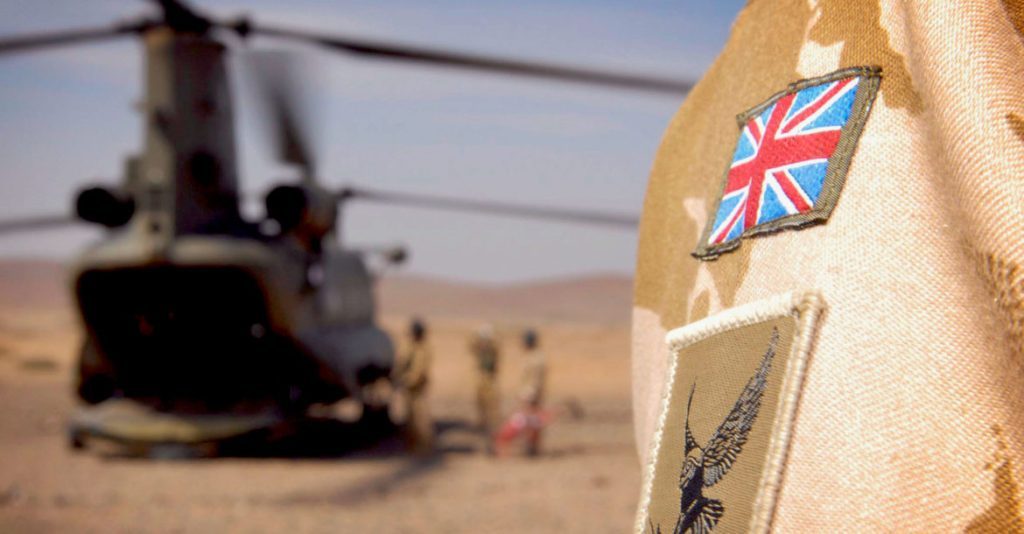
Two hundred and fifty highly trained British ground troops scheduled to be deployed in a UN peacekeeping mission in Mali in 2020 may not yet know exactly where they are heading or what precisely they will be doing, but they do know it will be risky, like reported by theguardian.com.
Mali is the most dangerous country in the world for UN peacekeepers: so far 123 have died and 358 have been severely wounded in the ongoing counter-insurgency operations.
It is much more dangerous for Malian citizens, who are facing a deepening humanitarian crisis. “Violence and insecurity have escalated to unprecedented levels” in parts of Mali and nearby countries, the UN said in May.
The British deployment comes at the request of the UN mission in the west African country, known as Operation Minusma. According to UK sources, the request was based on the assertion that the British army was uniquely positioned to offer much-needed intelligence capabilities. After other European countries had contributed, arguably it was also Britain’s turn.
Whatever intelligence British forces glean from their operations will be shared with the 13,000 peacekeepers already on the ground, who include soldiers from other west African countries, Bangladesh and Egypt.
The UK deployment in Mali has been quietly increasing. Three Chinook helicopters and around 100 British RAF personnel are already present in the country, supporting the Malian branch of Operation Barkhane, a French mission in five countries in the Sahel region focused on fighting jihadists active outside cities and in remote areas.
France is far more engaged in Mali, with 4,500 combat troops in the region. What the RAF Chinooks do is to help the French get around a vast geography where the road network is often poor. So useful was their logistical support that in early July their mission was extended by at least six months.
There is no single threat in the Sahel, a vast stretch of Africa that encompasses peaceable countries such as Senegal and ones fighting on several fronts, like Mali. Weapons have flooded the region in recent years, many of which were brought from Libya into Mali after the death of Muammar Gaddafi in 2011, enabling various groups to pursue different agendas.
The region is often perceived as filled with jihadists linked to the Islamic State or al-Qaida. There are no reliable estimates of their number, but they are likely to be far outnumbered by those fighting them.
Nevertheless, the efforts of west African governments and international partners to defeat them by force have not worked thus far. Some analysts, such as the International Crisis Group, have begun to recommend negotiating with militant leaders, arguing that the situation has reached a stalemate.
Donors have pledged hundreds of millions of dollars for a multinational counter-terrorism military force, with soldiers from Mali, Burkina Faso, Niger, Mauritania and Chad. That project has had several setbacks, including its headquarters being destroyed by armed Islamist groups last year.
A British general, Maj Gen Colin Weir, has recently returned from Mali to work out the details of the peacekeeping deployment, currently scheduled to begin mid-2020, although Ministry of Defence sources said it may be brought forward. The task is to work out how exactly the British troops, expected to be based in the north-eastern city of Gao, can usefully fit in with the overall UN mission.
The UN mission’s mandate was renewed in June and extended to include protecting civilians in central Mali, where for more than a year violence has escalated to the point where several massacres and security incidents are reported almost every day.
It is unclear how the UN plans to intervene in the centre, where the war between jihadists and the state has caused tension between communities. Ethnic militias have been attacking villages and killing anyone they find, often women and children.
According Dougoukolo Ba-Konoré, a researcher, the aim should be disarmament as it would be possible to convince communities to comply. “These aren’t people that are used to fighting; they aren’t people that are used to taking up arms,” said Ba-Konoré. “So any excuse to not fight will be a good excuse for them. But there needs to be a plan, and so far there isn’t a plan.”
Mali’s president, Ibrahim Boubacar Keïta, sacked two generals and disbanded a vigilante group after the massacre of around 160 people in March. The entire government resigned the following month.
Last month, Mali’s prime minister Boubou Cissé said 3,500 troops were being deployed to central Mali. The attacks continue, with nearly 100 people killed in one incident in June.
The UK hopes to increase its presence in the predominantly Francophone Sahel, including by opening new embassies in Chad and Niger. As it wrestles with Brexit and a loss of influence in Europe, it is also keen to be seen as supportive of UN peacekeeping operations.
Paul Melly, a Sahel expert at the thinktank Chatham House, said stabilising the Sahel was a “huge strategic priority for Europe” because it was so close and so many migrants come from the region. He said Britain could make a difference in Mali, but “only as much as any other European country engaged on the ground”.
There are few people in the UK military with experience of working in the Sahel and a conflict that has little or no visibility among the British public. But as the British army’s presence in Mali increases, that is set to change.


